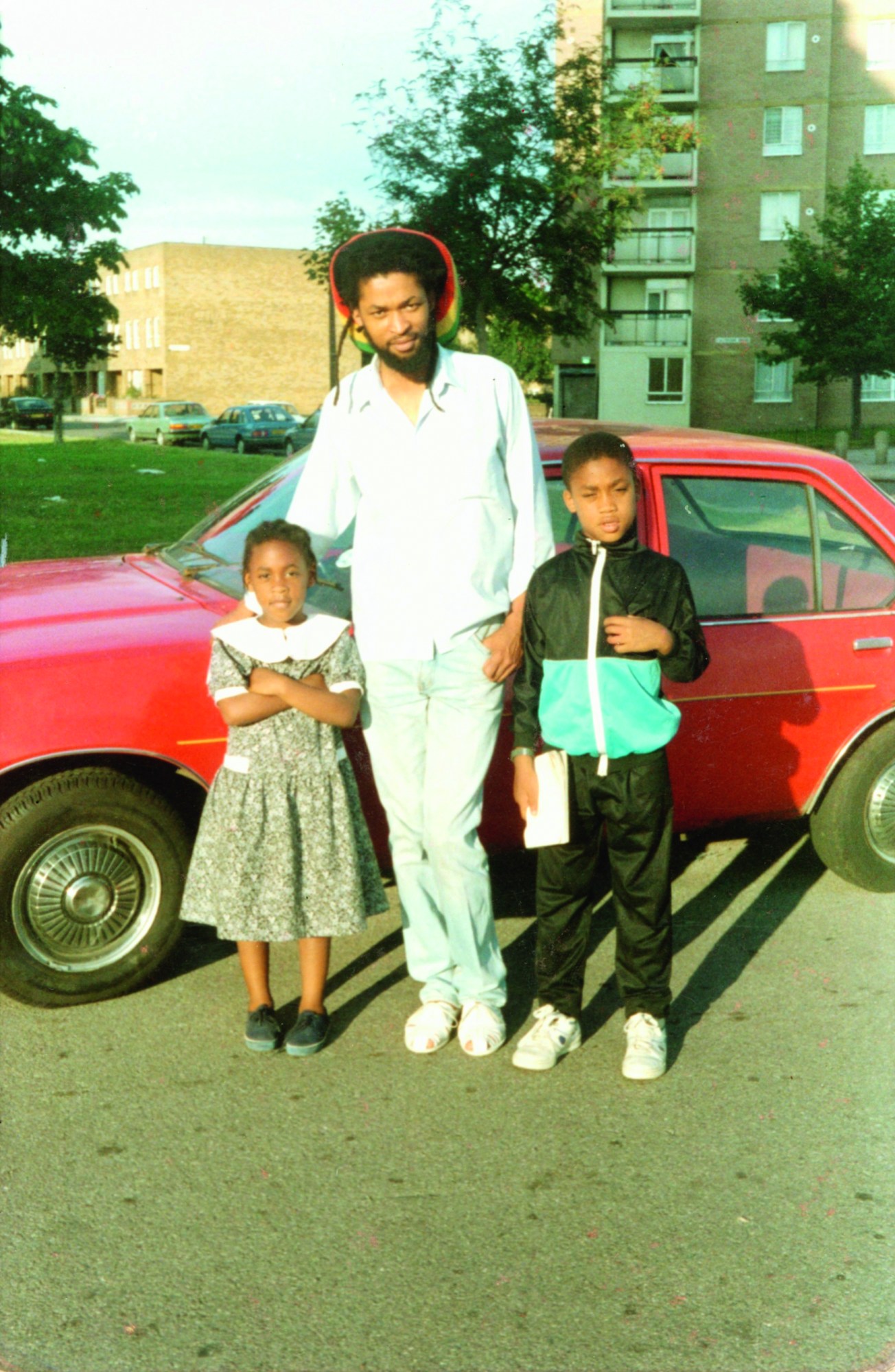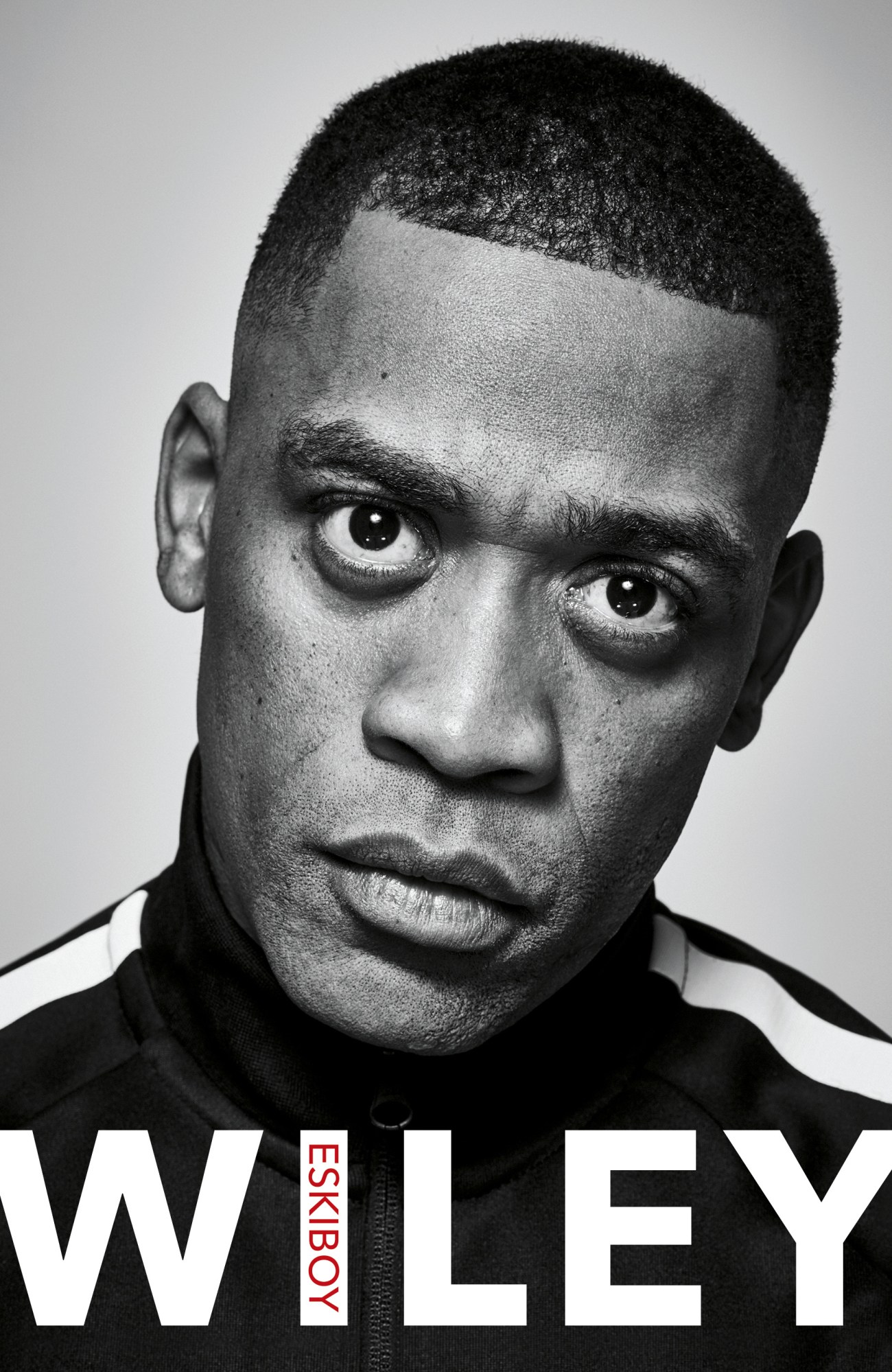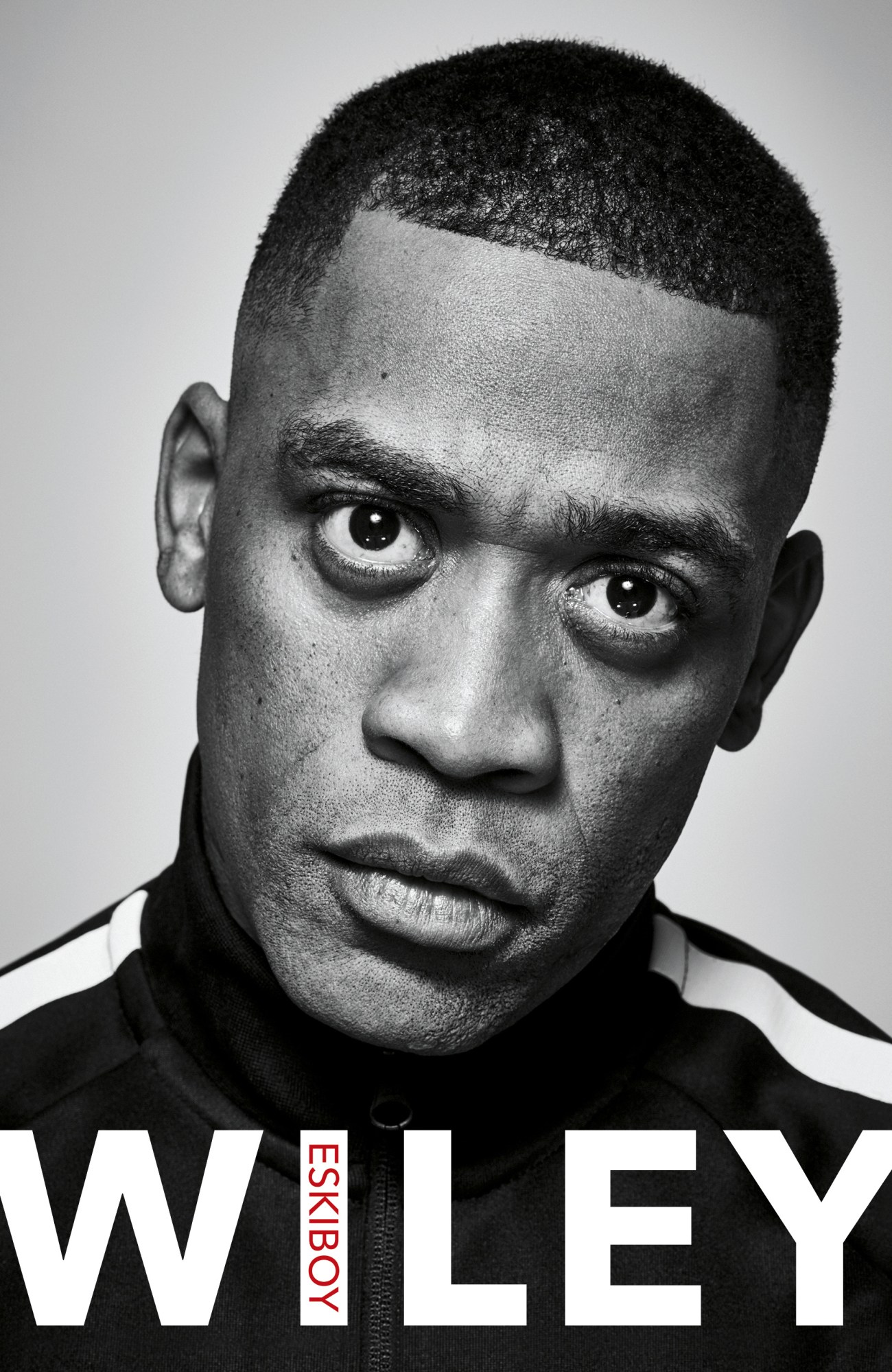The Godfather of Grime has been described as infuriating, ingenious, inventive and inspiring. The mythologies of unpredictability, eccentricity and unreliability that have surrounded Wiley over the best part of his 20-plus-year career are undoubtedly a large part of his success. The rest of it though is no less significant; Wiley is an incredibly gifted producer, a brilliantly witty, capricious writer, and the best A&R working in British music; the E3 MC has in part been a huge part of the careers of everyone from Dizzee to Tinchy, Skepta to JME.
His just released autobiography, Eskiboy, attempts to deconstruct the “truth, lies and rumours” (the basis of all good clashes, he points out on P.111) via 96 fast and furious chapters. His lateness and refusal to turn up to press, video shoots and shows (most notably Glastonbury in 2013), is often more to do with a legitimate fear for his life than laziness, points out both his sister and his dad, who contribute brilliant insights to the book.
A truly maverick character, Wiley’s lived a lot of life in his 38 years, and Eskiboy packs much of it into 330 pages. A whirlwind chronicle of friendships, family, violence, beefs, parenting, politics, race and a pure, mad passion for music. While it can be a frustrating read — there’s often little detail, while potentially significant points are left hanging in the air — the pace of the book is a brilliant match for Wiley’s own personality. He’s always on the move, looking ahead, plotting the future, and the nature of this autobiography absolutely suits his frenetic temperament. It’s both frustrating and fascinating. Eskiboy ensures everyone falls in love with Richard Kylea Cowie, the charmingly fallible lead at the heart not only of this book but the grime scene itself.
The book comes out today; here’s just 8 of the 408 things we learnt from Eskiboy, Wiley’s captivatingly unorthodox autobiography.

The introduction is brilliant.
“I hate bullshit books,” Wiley begins. “I’ve read a lot of biographies. Most of them are boring.” And this, dear reader, is why we love Wiley.
It’s as spontaneous and unpredictable as you would want from a Wiley book.
Much of Eskiboy is stream-of-consciousness stories and often unconnected or unexplained thoughts. “I was like Ajax. Ajax train players,” he writes at one point, about the talent he has helped to mentor, before announcing, “I’m a kung-fu master”. Then the chapter ends.
Eskiboy is dedicated to Richard Antwi and to “people who are lost like me”.
Much loved music lawyer and manager Richard Antwi died suddenly, aged 38 in 2016. His death affected many in British music pretty profoundly; particularly those Richard worked with, such as Lethal B, Wretch 32 and Wiley himself. It’s a fitting tribute and the dedication of Eskiboy to Richard speaks of Wiley’s own generous and thoughtful nature, which can often be lost in the rowdiness of his lyrics. The closing line of the introduction is perhaps the most quietly poignant moment of the book (although there are many). “I’m doing it for people like me. For people who grew up like me. I’m doing it for people who are lost like me.”
He’s amazing at making money and even better at spending it.
The book is dotted with anecdotes about just how awful Wiley has been with cash. He spent his first check — £1000 — in an amusement arcade. His sister, Janaya, recounts getting a phone call about a £48,000 room bill from a Hilton in Manchester and there’s the time he took his mates on a £20k shopping spree in the West End. He took a taxi from Glasgow to London. He bought a brand new Rolls Royce that he left parked on the Roman Road, and which, unsurprisingly, got keyed. But he’s also incredibly generous, acting as a benefactor not only to his friends and family, but even to a kid he once met outside a studio while on holiday in Jamaica. As Wretch 32 puts it: “Every pound he received, he gave 50 pence back. Sometimes, for every pound he received, he gave £1.50 back.” He’s as much the benefactor of grime as he is its Godfather.
His musician dad is incredibly proud of him. And he loves his dad too.
The love between Wiley and his dad is part of the brilliance of the book. “He had to fight through to get to where he was going. Which he did. Apart from the music, the tenacity of his spirit, to stick with this, throughout all that?” Richard Snr says of the years when Wiley was attacked and stabbed on numerous occasions. “You’ve got to commend him for that. He’s my son. I love him and I love what he’s done. He took my dreams to the next level.” Wiley talks often about the impact his musician father had on him, from the day he put a pair of drumsticks into his hands as a toddler. He talks more obliquely about his relationship with his mum; issues between the pair over the years are alluded to. But it’s all ended up happily ever after — Wiley’s mum now lives in Cyprus with her son. “I know that the pain between me and my mother could last until we both leave this earth. But creating pain isn’t just darkness — I want to help my mum through it, I want to make her smile. I want to make her laugh.”
Wiley really loves his sister.
Janaya is the most frequently mentioned person in the book and she understands her brother innately. Growing up, the pair were sent to live with their nan after their mum’s brother was murdered, and though they were separated when Wiley went to live with his dad as a teenager, Janaya has acted as her brother’s accountant, confidant, therapist and friend as well as little sister. “Eski, igloo, ice, cold — that all comes from my childhood. The pain, the isolation, the frustration. My sister Janaya understands, from when we were kids, she’s been in the igloo with me.”
There’s plenty of insight for even the biggest of fans.
It’s assumed from the off that anyone reading Eskiboy is intimately familiar with Wiley. For fans, this is great; there’s no explanations needed, while there are plenty of revealing insights into how he works as a human and a musician. Lady Ny was his first love. The snare is at the heart of it all. The zip files. Beef with Trim. The Dizzee story, of course. Making pop hits like Rolex and Heatwave. His incarnations from SS Crew to Wildchild and the Phaze One, Pay As U Go and Roll Deep years. There’s also a candid account of why he was slashed across the face and the profound effect it has had, and continues to have, today. “You can’t move past traumas like that. That took years off my career.”
He thinks a lot about race and what it means to be a black male in Britain today. In fact, Wiley is a feminist, a socialist and a progressive who searching for utopia.
Littered throughout the book are ruminations on being young, black and working class. He talks of the lack of women in grime and the police, he thinks about black on black crime, he’s passionate about how society and the system set black people up to fail. “I’m black and this is not a black man’s country… me and my people shouldn’t be here, we should be back in Africa. And we’re not. We’re scattered across the earth.” He’s a multiculturalist though. “I don’t want my child to go into a world that’s dictated on colour or classicism and all the rest of it.” As for his vision of the future, he’s utopian in his outlook: “On this earth there are humans, and there are people who want to control us and keep us apart. I want everyone to be equal… I can’t be happy with £10 if you’ve only got a fiver.”

